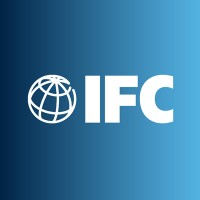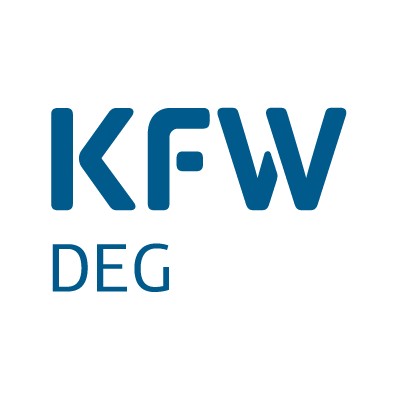A Green Surge: $275 Million Investment Fuels Fourth Partner Energy's Ambitions
August 8, 2024, 10:37 pm

Location: Philippines, Metro Manila, Pasig
Employees: 1001-5000
Founded date: 1966
Total raised: $140M

Location: United States, District of Columbia, Washington
Employees: 1001-5000
In a bold move to reshape the renewable energy landscape, a consortium led by the International Finance Corporation (IFC), along with the Asian Development Bank (ADB) and Germany's Deutsche Investitions- und Entwicklungsgesellschaft (DEG), has injected $275 million into Fourth Partner Energy Ltd (FPEL). This investment is not just a financial transaction; it’s a catalyst for change, aiming to accelerate FPEL's ambitious plans to expand its renewable energy portfolio to 3.5 gigawatts (GW) by 2026.
The renewable energy sector is like a rising tide, lifting all boats. With this substantial investment, FPEL is set to harness the winds of change and solar rays of opportunity. Currently, the company boasts an installed base of 1.5 GW of green assets. It is also on the brink of launching its first phase of a 575 megawatt (MW) wind-solar hybrid project in Karnataka, under the Inter State Transmission System (ISTS) route. This project is a testament to FPEL's commitment to innovation and sustainability.
The breakdown of the investment reveals the strategic nature of this consortium. The IFC leads the charge with a commitment of $125 million. ADB follows closely with $100 million, while DEG contributes $50 million. Each player brings unique strengths to the table, creating a powerful alliance aimed at transforming India’s energy landscape.
Vivek Subramanian, Executive Director of FPEL, views this partnership as a significant leap forward. He emphasizes the potential to reshape the region's clean energy sector. The investment is not merely about numbers; it’s about creating a sustainable future. FPEL aims to assist businesses in achieving their renewable energy goals, fostering a just and equitable transition to clean energy.
The implications of this investment extend beyond FPEL. Imad N Fakhoury, IFC's Regional Director for South Asia, highlights the broader impact. The investment will enhance FPEL's renewable energy offerings, making clean energy more accessible and affordable for commercial and industrial consumers across India. This is crucial as the country seeks to diversify its energy mix and reduce its reliance on fossil fuels.
ADB's involvement adds another layer of depth to this initiative. The bank's investment includes $70 million from its ordinary capital resources and an additional $30 million from the Leading Asia's Private Infrastructure Fund 2 (LEAP 2). This dual approach underscores ADB's commitment to fostering sustainable infrastructure development in the region.
The renewable energy sector in India is poised for explosive growth. Experts estimate that it will attract an annual investment of $25 billion through 2030. This influx of capital is essential for meeting the country's ambitious renewable energy targets. As the world grapples with climate change, India stands at a crossroads. The path it chooses will have lasting implications for its economy and environment.
FPEL's strategic vision aligns with global trends. The company is not just focused on expanding its portfolio; it is also committed to creating a new asset class through strategic investments in distributed generation. This approach is vital for enhancing energy security and resilience in a rapidly changing world.
The partnership with IFC, ADB, and DEG is a clear signal that the renewable energy sector is gaining traction. Investors are increasingly recognizing the potential of clean energy solutions. This investment is a beacon of hope, illuminating the path toward a sustainable future.
As FPEL embarks on this journey, it faces challenges. The renewable energy landscape is competitive and ever-evolving. However, with strong backing from this consortium, FPEL is well-positioned to navigate these waters. The company’s commitment to innovation and sustainability will be key drivers of its success.
In conclusion, the $275 million investment in Fourth Partner Energy is more than just a financial boost. It represents a collective commitment to a sustainable future. As the world shifts toward renewable energy, partnerships like this will play a crucial role in driving progress. FPEL is not just building a portfolio; it is building a legacy. The future is bright, and the energy transition is underway. With each investment, we move closer to a world powered by clean, renewable energy. The tide is rising, and FPEL is ready to sail.
The renewable energy sector is like a rising tide, lifting all boats. With this substantial investment, FPEL is set to harness the winds of change and solar rays of opportunity. Currently, the company boasts an installed base of 1.5 GW of green assets. It is also on the brink of launching its first phase of a 575 megawatt (MW) wind-solar hybrid project in Karnataka, under the Inter State Transmission System (ISTS) route. This project is a testament to FPEL's commitment to innovation and sustainability.
The breakdown of the investment reveals the strategic nature of this consortium. The IFC leads the charge with a commitment of $125 million. ADB follows closely with $100 million, while DEG contributes $50 million. Each player brings unique strengths to the table, creating a powerful alliance aimed at transforming India’s energy landscape.
Vivek Subramanian, Executive Director of FPEL, views this partnership as a significant leap forward. He emphasizes the potential to reshape the region's clean energy sector. The investment is not merely about numbers; it’s about creating a sustainable future. FPEL aims to assist businesses in achieving their renewable energy goals, fostering a just and equitable transition to clean energy.
The implications of this investment extend beyond FPEL. Imad N Fakhoury, IFC's Regional Director for South Asia, highlights the broader impact. The investment will enhance FPEL's renewable energy offerings, making clean energy more accessible and affordable for commercial and industrial consumers across India. This is crucial as the country seeks to diversify its energy mix and reduce its reliance on fossil fuels.
ADB's involvement adds another layer of depth to this initiative. The bank's investment includes $70 million from its ordinary capital resources and an additional $30 million from the Leading Asia's Private Infrastructure Fund 2 (LEAP 2). This dual approach underscores ADB's commitment to fostering sustainable infrastructure development in the region.
The renewable energy sector in India is poised for explosive growth. Experts estimate that it will attract an annual investment of $25 billion through 2030. This influx of capital is essential for meeting the country's ambitious renewable energy targets. As the world grapples with climate change, India stands at a crossroads. The path it chooses will have lasting implications for its economy and environment.
FPEL's strategic vision aligns with global trends. The company is not just focused on expanding its portfolio; it is also committed to creating a new asset class through strategic investments in distributed generation. This approach is vital for enhancing energy security and resilience in a rapidly changing world.
The partnership with IFC, ADB, and DEG is a clear signal that the renewable energy sector is gaining traction. Investors are increasingly recognizing the potential of clean energy solutions. This investment is a beacon of hope, illuminating the path toward a sustainable future.
As FPEL embarks on this journey, it faces challenges. The renewable energy landscape is competitive and ever-evolving. However, with strong backing from this consortium, FPEL is well-positioned to navigate these waters. The company’s commitment to innovation and sustainability will be key drivers of its success.
In conclusion, the $275 million investment in Fourth Partner Energy is more than just a financial boost. It represents a collective commitment to a sustainable future. As the world shifts toward renewable energy, partnerships like this will play a crucial role in driving progress. FPEL is not just building a portfolio; it is building a legacy. The future is bright, and the energy transition is underway. With each investment, we move closer to a world powered by clean, renewable energy. The tide is rising, and FPEL is ready to sail.
